This morning, a news alert about ongoing protests sparked a thought. It brought to mind a powerful piece of music that, surprisingly, connects to ancient scripture and contemporary societal struggles. Reflecting on Psalm 23, a text known for its comforting verses, led me back to a sermon I once wrote titled “Living in a Gangster’s Paradise.” This exploration delves into how Coolio’s iconic track, “Gangsta’s Paradise,” uses and challenges the themes of Psalm 23, offering a profound commentary on life in the late 20th century and its continued relevance today.
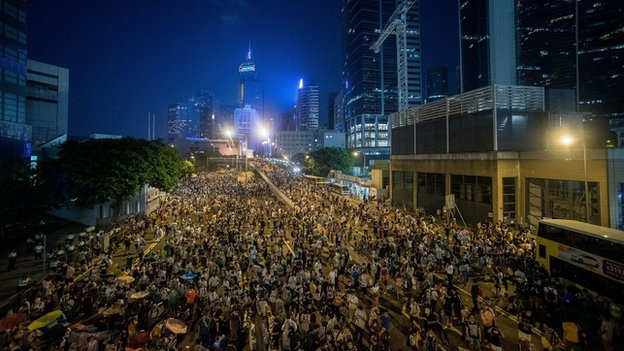 Hong Kong Protests Reflecting Modern Valleys of Shadow
Hong Kong Protests Reflecting Modern Valleys of Shadow
Psalm 23: An Enduring Beacon of Hope and Comfort
Psalm 23, often referred to as the Shepherd Psalm, resonates deeply across cultures and generations. Its verses are instantly recognizable, offering solace in times of trouble and expressing unwavering faith. From religious services to moments of personal reflection, Psalm 23 is a constant companion, promising guidance and provision. Its lyrical beauty and powerful imagery have made it a source of inspiration for countless artistic expressions, from classical compositions to modern hymns. This psalm is not confined to hymnals; it has permeated popular culture, appearing in diverse musical genres and cinematic works.
Artists across genres, from Duke Ellington’s jazz interpretations to Tupac Shakur’s raw poetry, from Dennis Brown’s reggae rhythms to Megadeth’s heavy metal sounds, and even sampled by Kanye West, have drawn inspiration from Psalm 23. Its themes have echoed in movies and across media platforms, demonstrating its universal appeal. However, these references are rarely direct quotations. Instead, Psalm 23 is often recontextualized, reinterpreted, and sometimes even challenged, reflecting contemporary perspectives and realities.
“Gangsta’s Paradise”: Reimagining Psalm 23 in the Urban Valley
The 1995 film Dangerous Minds, starring Michelle Pfeiffer, brought Psalm 23 into sharp focus for a new generation through its theme song, “Gangsta’s Paradise”. Performed by Coolio, featuring L.V., the song became a cultural phenomenon. Inspired by LouAnne Johnson’s autobiographical account of teaching in a challenging high school environment, Gangsta’s Paradise opens with the iconic line:
“As I walk through the valley of the shadow of death”
This immediately situates the listener in a world far removed from the “green pastures” and “still waters” traditionally associated with Psalm 23. The song’s lyrics paint a stark picture of urban life marked by violence, despair, and a constant struggle for survival. This first verse sets the tone for a powerful reimagining of the psalm’s themes:
As I walk through the valley of the shadow of death
I take a look at my life and realize there’s nothin’ left
‘Cause I’ve been blastin’ and laughin’ so long that
Even my mama thinks that my mind is gone
But I ain’t never crossed a man that didn’t deserve it
Me be treated like a punk, you know that’s unheard of
You better watch how you talkin’, and where you walkin’
Or you and your homies might be lined in chalk
I really hate to trip, but I gotta loc
As they croak, I see myself in the pistol smoke, fool
I’m the kinda G the little homies wanna be like
On my knees in the night
Sayin’ prayers in the streetlight
These lyrics vividly depict a “valley of the shadow of death” that is not metaphorical but tragically real. It’s a landscape of violence, where life is precarious, and even prayer offers little comfort amidst the harsh realities.
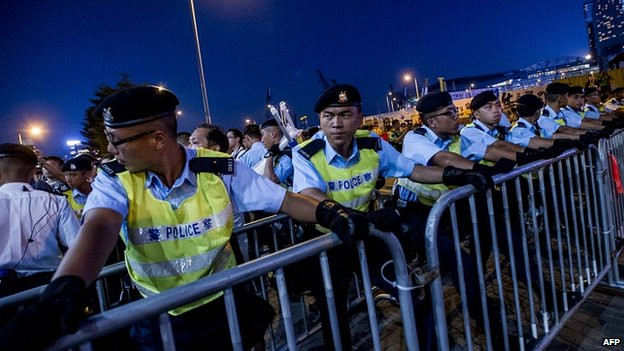 Clashes During Protests Symbolizing Modern Day Valleys
Clashes During Protests Symbolizing Modern Day Valleys
The Valley of the Shadow of Death: A Literal Reality
Traditionally, Psalm 23 is understood as a psalm of trust, expressing unwavering confidence in divine protection and care. The imagery of a shepherd tending to his flock evokes a sense of gentle guidance and provision. David, the likely author, drew upon his pastoral experiences to articulate a profound theological truth: God’s care for humanity mirrors a shepherd’s devotion to his sheep. The phrase “I shall not want” encapsulates this central theme of divine provision, encompassing both physical and spiritual needs, extending from earthly life into eternity.
However, “Gangsta’s Paradise” confronts this traditional interpretation head-on. Set against the backdrop of East Palo Alto, a city grappling with poverty and high crime rates, the song questions the accessibility and relevance of Psalm 23’s comforting promises. For those living in such “valleys,” the psalm’s assurances of “still waters” and “green pastures” can feel distant and even mocking. The stark contrast between the psalm’s promise and lived reality creates a sense of dissonance, prompting a critical re-evaluation of faith and hope in the face of adversity.
Distrust and Lament: A Modern Psalm of Struggle
Coolio’s lyrics express a deep-seated distrust, a skepticism towards the very notion of divine comfort and protection in a world riddled with hardship. This skepticism manifests as anger and despair, reflecting a profound disconnect from the unwavering trust proclaimed in Psalm 23. The “Gangsta’s Paradise” valley is not a temporary trial but an enduring reality, demanding a different kind of psalm – one of lament and struggle, rather than serene assurance.
Look at the situation they got me facin’
I can’t live a normal life, I was raised by the street
So I gotta be down with the hood team
Too much television watchin’ got me chasin’ dreams
I’m an educated fool with money on my mind
Got my ten in my hand and a gleam in my eye
I’m a loc’ed out gangsta, set-trippin’ banger
And my homies is down, so don’t arouse my anger, fool
Death ain’t nothin’ but a heart beat away
I’m livin’ life do-or-die-a, what can I say?
I’m twenty-three now, but will I live to see twenty-fo’?
The way things is goin’ I don’t know
In this verse, the psalm’s promise is not just questioned but seemingly rejected. The lines reveal a sense of hopelessness and uncertainty about the future. Unlike Psalm 23, which confidently proclaims “for you are with me,” “Gangsta’s Paradise” omits this crucial element of divine presence, leaving only struggle and doubt. The paradise promised by societal structures of power and wealth appears to be a “gangster’s paradise” built on exploitation and inequality.
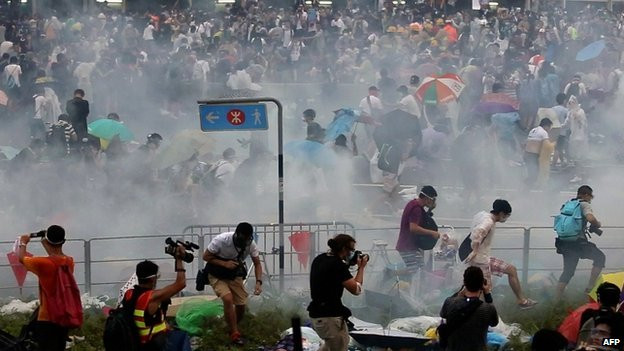 Urban Landscape Reflecting a Modern "Gangster's Paradise"
Urban Landscape Reflecting a Modern "Gangster's Paradise"
Deeper Dive into “Gangsta’s Paradise” Lyrics and Meaning
The song continues to explore the themes of power and money, exposing the harsh realities of a society where these forces dictate life and death.
Power and the money, money and the power
Minute after minute, hour after hour
Everybody’s runnin’, but half of them ain’t lookin’
It’s goin’ on in the kitchen, but I don’t know what’s cookin’
They say I gotta learn, but nobody’s here to teach me
If they can’t understand it, how can they reach me?
I guess they can’t, I guess they won’t
I guess they front, that’s why I know my life is outta luck, fool
These lines critique a system where opportunities are scarce, and guidance is absent. The “sacred canopy” of societal promises – safety, prosperity, and justice – seems to be a facade, particularly for marginalized communities. The song compels us to question: who truly benefits from this “paradise”? Is it a self-critique of “gangsta” life, or a broader social commentary on the systemic inequalities that perpetuate such realities? It is perhaps both – a cry from within and a call to the outside world to recognize the deeper issues at play.
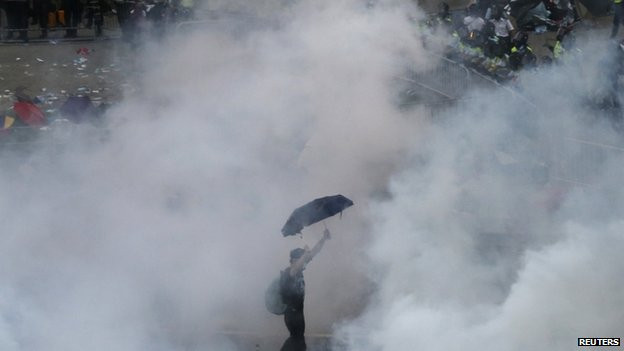 Protesters in City Streets Questioning Societal Paradise
Protesters in City Streets Questioning Societal Paradise
The Enduring Legacy of “Gangsta’s Paradise”
“Gangsta’s Paradise” takes Psalm 23 seriously by wrestling with its core themes of trust and lament in the context of contemporary suffering. It echoes the ancient tradition of lament psalms, which acknowledge pain and reality while still seeking a path forward. Coolio’s song, in its raw honesty, becomes a modern lament, expressing the tension between faith and the harsh realities of life. While it may not explicitly express trust in God, it implicitly laments the absence of divine justice and mercy in a world dominated by “money and power”.
The song’s enduring popularity stems from its unflinching portrayal of these tensions. It resonates with those who find themselves in their own “valleys of the shadow of death,” questioning the promises of a “paradise” that seems elusive or even deceptive. “Gangsta’s Paradise” challenges listeners to confront uncomfortable truths about societal structures and to consider who is included and excluded from the promised “green pastures.”
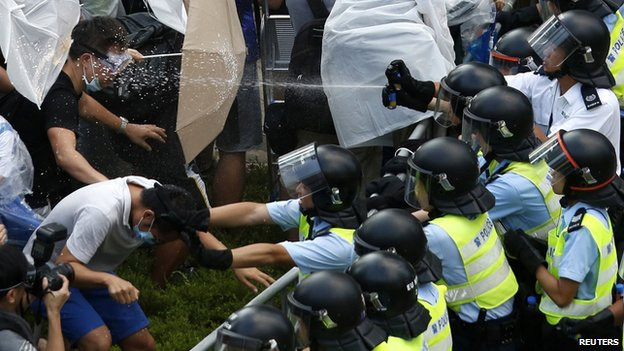 Crowded Urban Scene Representing a Contested Paradise
Crowded Urban Scene Representing a Contested Paradise
In conclusion, “Gangsta’s Paradise” is more than just a 90s hip-hop classic; it is a powerful theological and social statement. It reinterprets Psalm 23 for a generation grappling with urban realities, social injustice, and a questioning of traditional sources of comfort. It compels us to examine whether our pursuit of “paradise” has created valleys of shadow for others and to strive for a world where “green pastures” and “still waters” are accessible to all, dismantling the “rod and staff” of oppressive systems. Only then can we move beyond the “gangster’s paradise” and begin to build a truly just and compassionate society.


